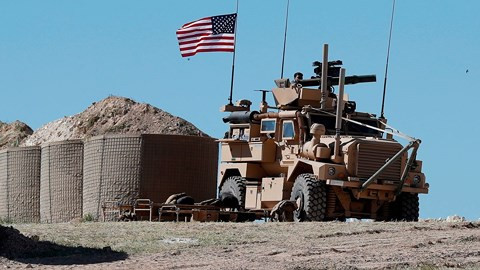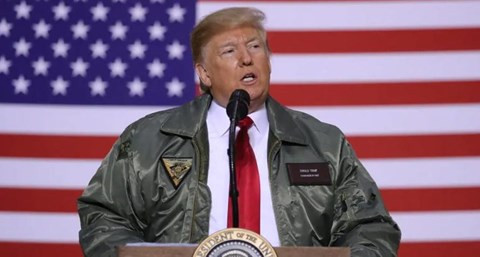Trump administration in trouble after decision to withdraw troops from Syria
The State Department, the Defense Department, and US National Security Advisor John Bolton have all jointly released a roadmap to carry out the troop withdrawal process as ordered by US President Donald Trump.
Within hours, the two agencies and Bolton issued separate statements indicating that the administration was taking the first steps to bring the 2,000 US troops home from Syria, despite opposition from many quarters. Mr. Trump’s announcement more than a week ago surprised allies in the region and sparked internal disagreements that led to the resignation of US Defense Secretary James Mattis.
 |
| The US decision to withdraw troops has surprised many allies. |
The statements could be seen as an effort by the Trump administration to assert that it is a united bloc, amid rumors that Mr. Trump is ignoring the advice of senior advisers and defense officials.
Meanwhile, US-backed militias are preparing for a future without the US. On December 28, a US-backed Kurdish force issued a statement demanding that Syrian government forces regain control of an area in northern Syria to protect it from “the threat of Turkish invasion”.
After years of fighting, the Kurdish forces’ cooperation with the Syrian government represents a major shift in the balance of power in the region. US Senator Lindsey Graham has warned that the agreement between the Kurds and the Syrian government is a “potential disaster” as new conflicts will emerge after the fight against IS.
“A nightmare for Türkiye and Israel, while Russia, Iran, Assad and ISIS are the winners,” Mr. Graham wrote on Twitter.
According to statements from the State Department, the Department of Defense, and Mr. Bolton, the Trump administration is coordinating with key partners to carry out the process of safely withdrawing US troops and effectively transferring security responsibilities.
Specifically, a few hours after the Kurdish statement appeared, Mr. Bolton announced that he intended to travel to Israel and Türkiye next month to determine “the next phase in the fight against IS as the US begins to bring troops home from Syria,” a statement that could be aimed at calming waves of protests in the US political world.
Shortly afterward, the US State Department issued a statement reaffirming US support for Israel’s right to self-defense “against Iranian actions that threaten the national security and safety of the Israeli people.” The State Department also stressed that “the commitment of the Trump administration and the American people to ensure the safety of Israel is enduring and unwavering.”
The statement did not specify the threats emanating from Syria, but it contained several warnings for Iran, one of the countries that would benefit from President Trump's decision to withdraw troops.
 |
| President Trump believes that the IS organization in Syria has been defeated, so the US military should not stay here any longer. |
Many Israeli politicians and generals have previously criticized Mr. Trump's decision, with many calling it a surrender by the United States. They also condemned the United States for abandoning its Kurdish partners, who had helped the U.S. coalition in the fight against IS. French President Emmanuel Macron also said he "regretted" Mr. Trump's decision.
Shortly after the State Department issued its statement, the US Department of Defense tweeted a statement saying that the withdrawal from Syria was “deliberate, well-discussed, and widely supported.”
“The next phase of the United States’ counterterrorism operation in Syria is a deliberate, well-discussed, and widely supported withdrawal process, and all necessary measures to ensure the safety of our troops will be taken,” the US Department of Defense said in a statement.
The message was in stark contrast to the chaos that had erupted at the Pentagon just over a week earlier – Mattis had resigned after the decision to withdraw troops was made, replaced by a former Boeing executive with little experience in foreign policy or military planning.
During President Trump's visit to Iraq, he said that his decision to withdraw troops was because the US had defeated IS.
“They asked, ‘Can we have more time?’ And I said, ‘No, you can’t have more time, you’ve had too much time.’ We’ve done a great job defeating ISIS. I think a lot of people will understand,” Trump said.

.jpg)

